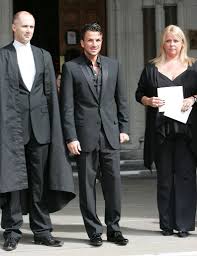Week 4
Privilege
So why does it matter? Routine reports are protected as they allow us as journalists to write or broadcast or material which may be defamatory or untrue, or even both at the same time. It gives us protection from being sued.
There are two types of privilege;
1. Absolute
2. Qualified
Absolute privilege concern Acts of Parliament, Hansard and also court reports, providing they are taken in a fair, accurate and contemporaneous manner.
Qualified privilege is available for material that is taken in a fair and accurate manner, that is without malice and is on a matter of public concern.
The Defamation Act 1996 sets out two levels of qualified privilege;
1. With or 'subject to' explanation or contradiction
2. 'Without' explanation or contradiction. Clarification such as notes need to by carried by someone.
In terms of part. 1(i) this covers;
(i) public proceedings in legislature anywhere in the world
(ii) public proceedings in a court anywhere in the world
(iii) public proceedings of a public enquiry anywhere in the world
(iiii) public proceedings of an international organisation or conference i.e. the Copenhagen climate summit
Part 1 (ii) covers such things like an extract of a document or register, which is legally required by the public.
Part 2 covers instances of;
(i) public meetings
(ii) local councils and committees
(iii) tribunals, commissions, inquiries
Associations such as the Football Association and the General Medical Council have a different status. The proceedings are not covered by legal paragraphs and therefore the public are excluded.
In the 2000 case of Turkington and Others v Times Newspapers Ltd, a meeting was not a public meeting just because the public attended without objection. A press conference where the public only had invitations was not as such public and a report of it was not protected under the act.
Written handouts are also covered under this law.
Journalists must recognise the risk of live broadcasts. Individuals who are suddenly newsworthy, in highly charged and emotional situations may blurt out defamatory statements and so a 'delay button' should be used to prevent being sued. The audience should be made aware of this.
No privilege is granted outside of the main proceedings. If defamatory, spontaneous comments shouted from the public gallery cannot be reported. Otherwise they can. These add the drama and 'colour' to the story.
George Galloway MP v Telegraph Group Ltd [2004]
The news headline read 'Telegraph reveals damning new evidence on Labour MP'. When sued, the paper did not claim the allegations were true but claimed the headline was merely an expression of opinion. The judge however said that 'damning' had a plain meaning, 'that is to say, that the evidence goes beyond a prima facie case and points to guilt.' The MP therefore won his case.
Loutchansky v Times Newspapers Ltd [2001]
The Times published an articles about an international businessman, Grigori Loutchansky. The stories alleged that he controlled a major Russian criminal organisation involved in money-laundering and also the smuggling of nuclear weapons. The newspaper agreed the stories were defamatory, but argued it had a defence of qualified privilege. The defence was rejected and the case then went to the Court of Appeal, who agreed that the articles dealt with matters of public concern (point 2). To implicate him in this misconduct is highly likely to be very damaging to his reputation. Therefore a proportionate degree of responsibility was needed by the journalist and the editor. They failed to show this, in particular because the allegations were vague, the sources were unreliable, sufficient steps had not been taken to verify the information , and no comment had been obtained from Loutchansky before publication. The reporter claimed he had copied an interview down with a very important source, although he said he must of wrote this down on a scrap of paper and must of subsequently thrown it away. The Appeal court rejected the newspaper's appeal.
Scenario
A farmer, John Wagstaff, has put in a planning application to build six wind turbines on his land near Stockbridge.
Many residents are strongly opposed and call a public meeting to fight the plans.
The turbines will be sited adjacent to a golf club. Members there are already saying the noise will ruin their enjoyment.
Your WINOL news editor asks you to go to the meeting.
Emotions are running high - especially when the newly elected chairman of the SOS campaign group (Save Our Stockbridge) passes around artists impressions of what the turbines will look like on the hill above the town.
Henry Fisher (the chairman) tells the meeting:
'Mr Wagstaff says he's a supporter of green energy. In fact, this is all about making money and he doesn't give a damn about ruining the skyline above one of the most beautiful towns in Hampshire.'
Jim Eagle, golf club secretary, says :'This will ruin our course. It's environmental vandalism on a massive scale. No respect for our members or the countryside. If this happens we can forget the Ryder Cup bid.'
Mr Wagstaff isn't at the meeting, but one of his employees Geoff Salt is. He says: 'I'm no expert on green energy, but Mr Wagstaff has told me that without the income from the turbines, he might have to pack it in, and I'll be on the dole. So I think it's a good idea.'
There's an overwhelming vote to lobby the council against the turbines, and to start a petition.
After the meeting has ended, Mr Eagle comes up to you and says: 'The truth is that Wagstaff was black-balled by the committee last year and this is his revenge. Not a lot I can say, but many of us think he was routinely handing in falsified cards. Never settled his bar bill either. Not our sort at all.'
Both Henry Fisher and Jim Eagle's quotes are acceptable and ready for publication as they are both non - defamatory. The former is an honestly held opinion and the latter, a comment.
The third quote by George Salt ensures a fair balance of opinions are made. The reporter will be required to get in contact with Mr Wagstaff and so there will comments from both the employer and the employee.
The fourth quote, however, from Mr Eagle is defamatory. It certainly is not fair, as Mr Wagstaff is not there to defend himself and so the accuracy of the statement is under question. The statement is also made with malice in mind and is of no concern to the public. Therefore the quote would fail on both the grounds of absolute privilege and qualified privilege.



